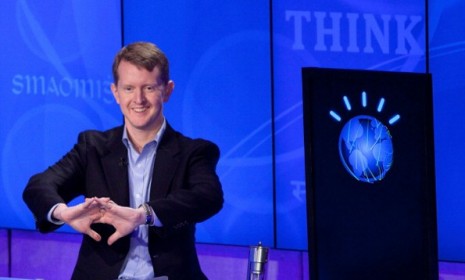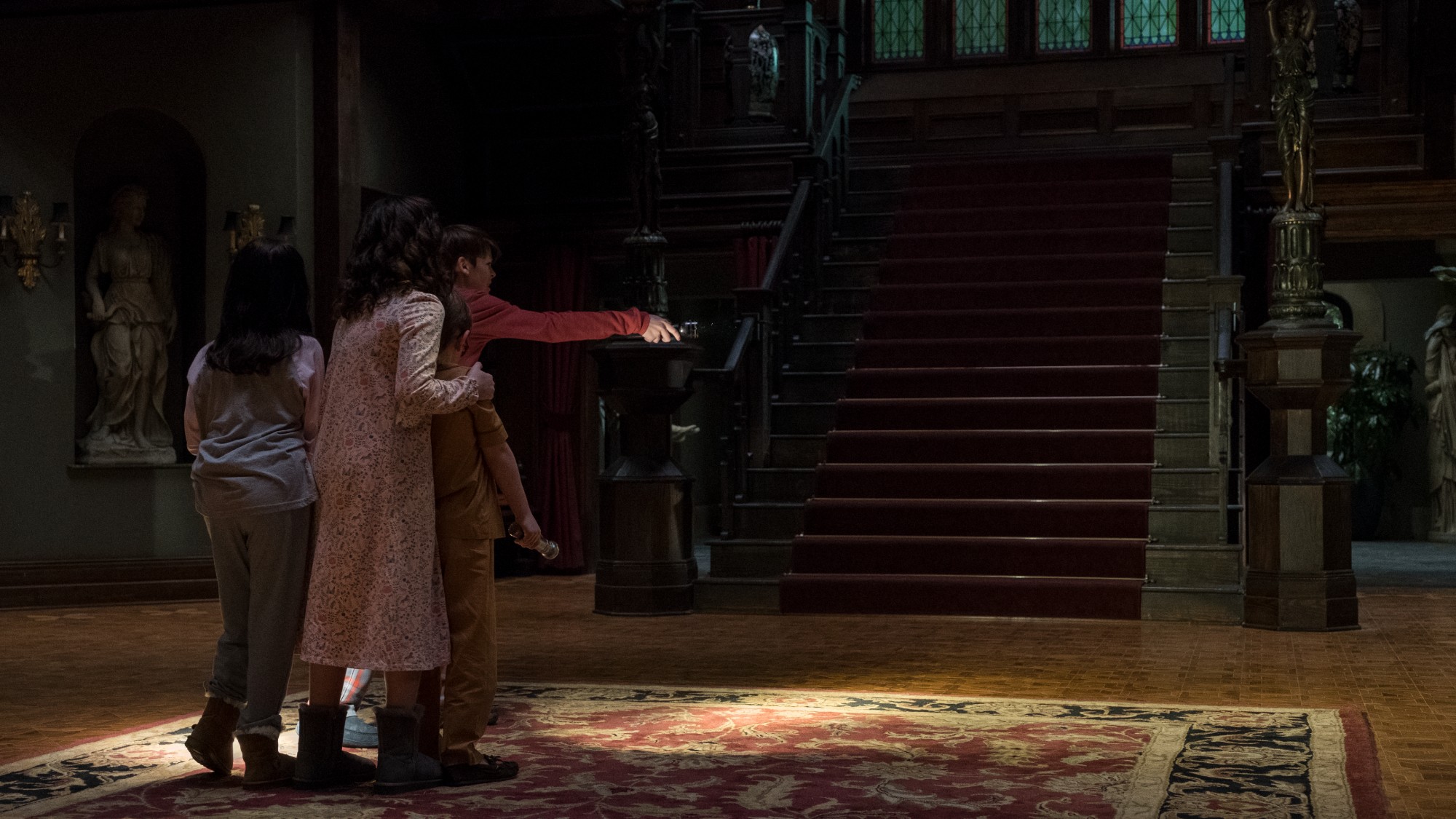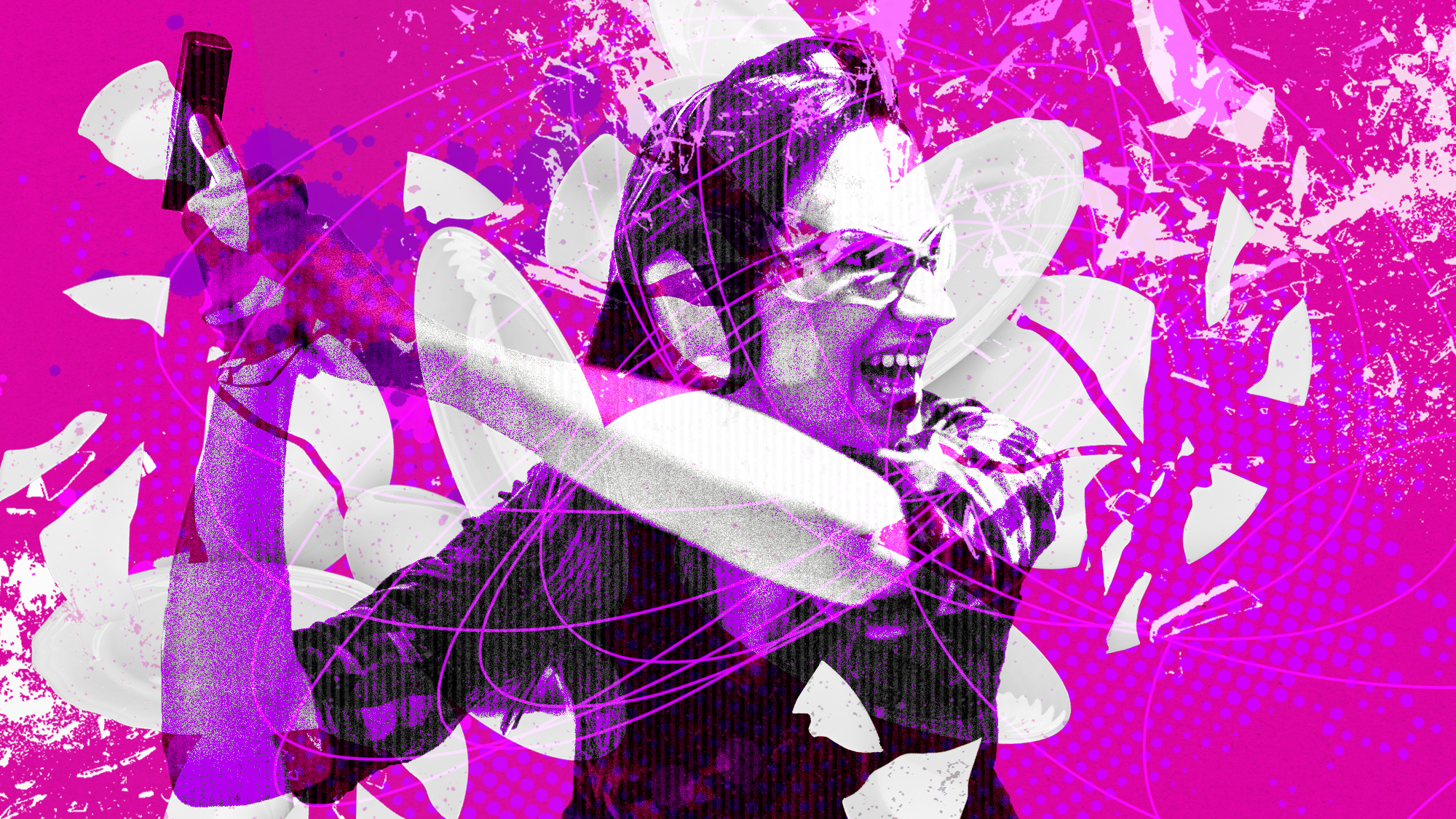'Jeopardy!' Are machines smarter than humans?
An IBM supercomputer crushed its human competitors on a quiz show. What does this mean for our future?

It's official: Machines are better than humans at "Jeopardy!" An IBM supercomputer called Watson handily defeated the two greatest human contestants in the game show's history in a three-night battle that concluded Wednesday. The machine made a few goofs — including confusing Toronto for an American city — but proved dominant, coming away with a total of $77,147 to Ken Jennings' $24,000 and Brad Rutter's $21,600. If machines can beat humans at trivia, are they just plain smarter than us? (Watch Watson's final day performance)
We should be proud that computers are smarter than us: '"Quiz show contestant"' may be the first job made redundant by Watson, says contestant Ken Jennings at Slate, but "it won't be the last." IBM hopes the machine will be useful in everything from medical diagnosis to tech support. But these man-made machines are a symbol of human "ingenuity," not a threat to it — until, of course, they start thinking for themselves and figure out "the nuclear launch codes."
The Week
Escape your echo chamber. Get the facts behind the news, plus analysis from multiple perspectives.

Sign up for The Week's Free Newsletters
From our morning news briefing to a weekly Good News Newsletter, get the best of The Week delivered directly to your inbox.
From our morning news briefing to a weekly Good News Newsletter, get the best of The Week delivered directly to your inbox.
Watson is a useless PR gimmick: "Don't worry: Computers aren't going to take over the world any time soon," says Matt Blum at Wired. Programming computers to beat humans at "Jeopardy" and chess is a "neat" trick, but it's really just a "meaningless publicity stunt." The thing that would "truly bring computers close to humans," though, is "versatility." Call me when Watson can "write blog posts and program computers."
"Why Watson's 'Jeopardy!' win is mostly meaningless"
Either way, it inspired curiosity: "Well, that was… fun? Instructive? Terrifying?" says Noel Murray at The A.V. Club. It doesn't really matter whether you think Watson is a threat to human rule or just an amusing "parlor trick." Either way, you have to admit this new "Jeopardy" champ has inspired people to think about how learning machines might influence our future, just as Deep Blue's chess victory over Garry Kasparov.
"'Jeopardy': IBM challenge"
A free daily email with the biggest news stories of the day – and the best features from TheWeek.com
Watson should have played a fairer game: Watson can buzz in, "quickly and emotionlessly," within 10 milliseconds of a clue's completion, says James Poniewozik at Time. That's a huge, unfair advantage among "Jeopardy" champions, who all know most of the answers and simply race to see who hits the buzzer first. So Watson "won a speed contest," but for a real test of knowledge, maybe it should compete in a slower game: "Trivial Pursuit, maybe?"
-
 The 8 best horror series of all time
The 8 best horror series of all timethe week recommends Lost voyages, haunted houses and the best scares in television history
-
 Breaking news: the rise of ‘smash hit’ rage rooms
Breaking news: the rise of ‘smash hit’ rage roomsUnder the Radar Paying to vent your anger on furniture is all the rage but experts are sceptical
-
 Did markets’ ‘Sell America’ trade force Trump to TACO on Greenland?
Did markets’ ‘Sell America’ trade force Trump to TACO on Greenland?Today’s Big Question Investors navigate a suddenly uncertain global economy